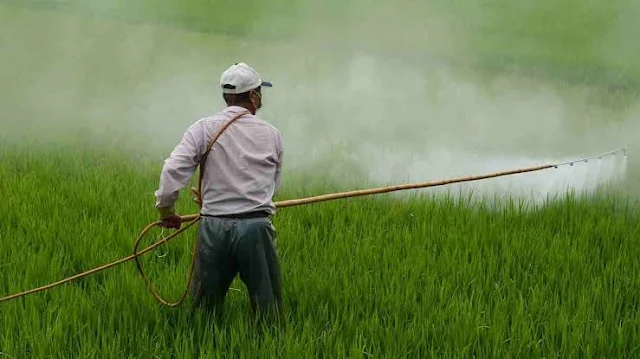No matter how advanced or complex the world becomes, food remains an unshakable necessity for human survival. Whether in technologically advanced nations or in developing countries striving to catch up, every individual depends on food. Yet, as the global narrative of development unfolds, agriculture—the source of this essential need—has been increasingly sidelined. This shift is not only alarming but also dangerous, as it threatens both human health and environmental balance.
Over the past four to five decades, global and national populations have soared, while cultivable land has steadily declined. The relentless expansion of infrastructure—railways, highways, industries, airports, urban housing, schools, and hospitals—has come at the cost of forests, ecosystems, and fertile farmland. As cities swell, the fields that once fed them shrink.
A 2024 Global Report on Food Crises reveals that approximately 295 million people worldwide are facing acute food insecurity, a number expected to balloon to 943 million by 2025. The UN Food and Agriculture Organization (FAO) estimates the hidden annual cost of global agriculture at $12 trillion, much of it linked to unhealthy diets and ecological degradation.
India is no exception. The country ranked 105th out of 127 in the 2024 Global Hunger Index, with a score of 27.3—placing it in the “serious” category. This reflects not just a hunger crisis but a deeper systemic failure in our agricultural and food systems.
At the same time, the demand for food has grown in line with the population. In response, governments and farmers have been pushed to maximize yields—often by any means necessary. Since the 1970s, chemical fertilizers and pesticides have become the cornerstone of modern farming, heavily promoted and now virtually indispensable. So entrenched is their use that many farmers, even if willing, find it nearly impossible to transition away.
The result has been devastating. Chemical-heavy farming has stripped vital nutrients from food grains. Even as India produced 329.7 million tonnes of food grains in 2024—thanks largely to chemical inputs—the nutritional quality of that produce has deteriorated. India’s fertilizer market relies 85% on chemical products, with organic inputs making up just 15%. Urea is the most widely used, and since 2009–10, its use has risen by a third. Meanwhile, its cost has increased only 16.5% due to subsidies, deepening farmers’ dependence.
Farmers, accustomed to this system, continue with chemical-based agriculture because it promises short-term gains. Government warehouses overflow with grain. Minimum Support Prices (MSPs) have climbed. Subsidies cover seeds, fertilizers, pesticides, and other inputs. The government purchases a substantial share of produce annually, and below-poverty-line families receive subsidized food.
But this surface-level convenience masks a troubling contradiction.
As chemically-treated crops become the norm, public health is deteriorating. Diseases—both curable and chronic—are on the rise. The medical industry, research sector, and pharmaceutical companies may benefit, but society at large bears the cost in terms of weakened immunity and rising healthcare expenses. The development model, in its current form, traps us in a cycle of short-term fixes and long-term harm.
Even as we celebrate India’s emergence as the world’s fourth-largest economy, overtaking Japan with a GDP of $4 trillion and eyeing Germany’s spot by 2028, these milestones ring hollow if they rest on an unbalanced foundation—overreliance on imports, consumerism, and service industries. True development must be rooted in sustainability, with agriculture at its core.
Today, over 60% of India’s population still depends on agriculture for livelihood. Yet, despite subsidies and free food distribution, many find it impossible to continue farming. The projected growth of India’s food processing sector to $535 billion by 2025–26 further highlights the problem: while profits skyrocket, they accrue mostly to corporations, not farmers.
There is, however, hope on the horizon. India’s organic fertilizer market is expected to grow to $935 million by 2031. This signals a critical opportunity to shift toward natural farming. The government must prioritize this transition—redirecting subsidies from chemical to organic inputs, training farmers in traditional and sustainable methods, and supporting natural soil enrichment.
Key steps include:
- Promoting widespread soil testing and natural nutrient replenishment
- Supporting large-scale bio-fertilizer production
- Creating direct farmer-to-market links to cut out exploitative middlemen
In this time of climate stress, rising disease, and ecological collapse, India must return to its agrarian roots—not as a retreat, but as a visionary step forward. Sustainable agriculture is not a luxury; it is a necessity for meaningful progress. Only by re-centering farming in our development model can we build a truly resilient, healthy, and equitable society.


Comments